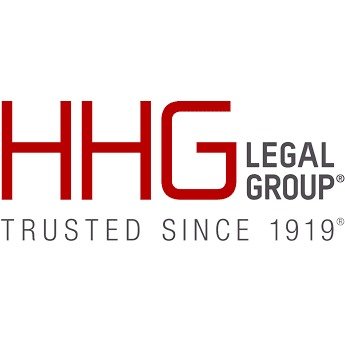Best Private Equity Lawyers in Australia
Share your needs with us, get contacted by law firms.
Free. Takes 2 min.
Or refine your search by selecting a city:
List of the best lawyers in Australia
About Private Equity Law in Australia
Private Equity (PE) refers to investment in private companies or buyouts of public companies that result in their delisting from stock exchanges. In Australia, private equity plays a significant role in the business landscape, providing capital to companies with growth potential, supporting management buyouts, and facilitating restructures. The field is governed by a range of corporate, financial, and tax laws. Private equity transactions involve complex legal arrangements to protect investor interests, structure investments, and ensure compliance with regulatory frameworks. Whether you are an entrepreneur seeking funding or an investor looking to enter the Australian market, understanding the legal landscape of private equity is crucial for success.
Why You May Need a Lawyer
The private equity process involves multiple stages and significant financial stakes. You may need legal advice in situations such as:
- Negotiating and drafting investment agreements
- Conducting due diligence on target companies
- Structuring funds and investment vehicles
- Understanding regulatory obligations imposed by ASIC and FIRB
- Managing mergers, acquisitions, or management buyouts
- Navigating exits such as initial public offerings or trade sales
- Resolving disputes between partners or investors
- Ensuring tax compliance and optimising structures
- Protecting intellectual property and other assets
A lawyer with expertise in private equity can help safeguard your interests, ensure compliance, and facilitate complex transactions smoothly.
Local Laws Overview
Australian private equity is primarily regulated by several key laws:
- The Corporations Act 2001 (Cth): Governs company formation, management, fundraising, and disclosure requirements.
- The Australian Securities and Investments Commission Act 2001: Oversees market conduct and investor protection.
- Foreign Acquisitions and Takeovers Act 1975: Sets out rules for foreign investment, including FIRB approvals.
- Competition and Consumer Act 2010: Addresses competition policy concerns, including mergers and acquisitions oversight by the ACCC.
- Australian Taxation Laws: Impact structuring, profit distribution, and exit strategies.
- Employment and Intellectual Property laws: Protect assets and manage workforce changes through the investment cycle.
Understanding these laws is essential for compliance, risk management, and ensuring your investment is protected throughout its lifecycle in Australia.
Frequently Asked Questions
What is private equity?
Private equity refers to investment funds or individuals investing directly in private companies, or in public companies with the intention to delist them, typically in pursuit of business growth or restructuring.
How does private equity differ from venture capital?
Private equity typically involves larger, later-stage companies and focuses on buyouts or significant investments for control. Venture capital generally invests earlier, in rapidly growing startups, with less emphasis on control.
Do I need FIRB approval for a private equity investment in Australia?
If you or your fund are considered a foreign investor, approval from the Foreign Investment Review Board (FIRB) may be required for certain investments, particularly those above specified thresholds or in sensitive industries.
What is due diligence in a private equity transaction?
Due diligence is a thorough investigation of a target company's financial, legal, and operational matters to assess risks and inform investment decisions.
How are private equity funds structured in Australia?
Funds are commonly structured as limited partnerships, trusts, or unit trusts, each with their own regulatory, tax, and operational implications.
What are the key legal documents in a private equity transaction?
Essential documents include the share or unit sale agreement, shareholders agreement, management agreements, disclosure letters, and often employment and intellectual property transfer documents.
What regulatory bodies oversee private equity in Australia?
Key regulators include the Australian Securities and Investments Commission (ASIC), the Australian Competition and Consumer Commission (ACCC), and the Foreign Investment Review Board (FIRB).
What tax considerations are relevant for private equity?
Taxation affects structuring, profit distribution, and exit transactions. Considerations include capital gains tax, GST, stamp duty, and the application of managed investment trust rules.
Are there restrictions on foreign private equity investors?
Yes, foreign investors face certain limits and must comply with the Foreign Acquisitions and Takeovers Act and seek FIRB approval where relevant.
What are common exit strategies for private equity investments?
Typical exit routes are initial public offerings, trade sales to other companies, or secondary buyouts to other private equity funds.
Additional Resources
- Australian Securities and Investments Commission (ASIC) - Regulates companies and investments
- Foreign Investment Review Board (FIRB) - Oversees foreign investment approvals
- Australian Private Equity & Venture Capital Association Limited (AVCAL) - Industry body providing information and statistics
- Australian Competition and Consumer Commission (ACCC) - Monitors competition issues
- Australian Taxation Office (ATO) - Offers tax guidance for investments and structures
- State legal aid organisations or business chambers for additional support
Next Steps
If you are considering a private equity investment or transaction in Australia, your first step should be to seek tailored legal advice from a qualified professional with relevant expertise. Collect as much information as possible about your proposed investment, your objectives, and potential partners. Reach out to law firms or legal consultants experienced in private equity matters. Prepare to discuss your intended investment, your business structure needs, and any cross-border elements that may impact your transaction.
A lawyer can help you identify legal risks, confirm compliance obligations, and negotiate the best possible terms for your situation. Engaging legal guidance early in the process can prevent costly mistakes and ensure a smooth transaction.
Lawzana helps you find the best lawyers and law firms in Australia through a curated and pre-screened list of qualified legal professionals. Our platform offers rankings and detailed profiles of attorneys and law firms, allowing you to compare based on practice areas, including Private Equity, experience, and client feedback.
Each profile includes a description of the firm's areas of practice, client reviews, team members and partners, year of establishment, spoken languages, office locations, contact information, social media presence, and any published articles or resources. Most firms on our platform speak English and are experienced in both local and international legal matters.
Get a quote from top-rated law firms in Australia — quickly, securely, and without unnecessary hassle.
Disclaimer:
The information provided on this page is for general informational purposes only and does not constitute legal advice. While we strive to ensure the accuracy and relevance of the content, legal information may change over time, and interpretations of the law can vary. You should always consult with a qualified legal professional for advice specific to your situation.
We disclaim all liability for actions taken or not taken based on the content of this page. If you believe any information is incorrect or outdated, please contact us, and we will review and update it where appropriate.
Browse private equity law firms by city in Australia
Refine your search by selecting a city.

















